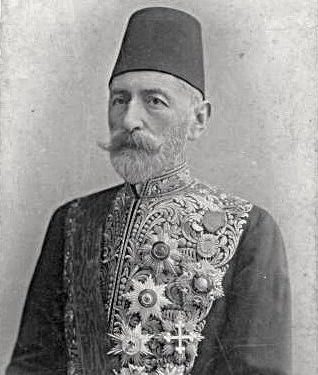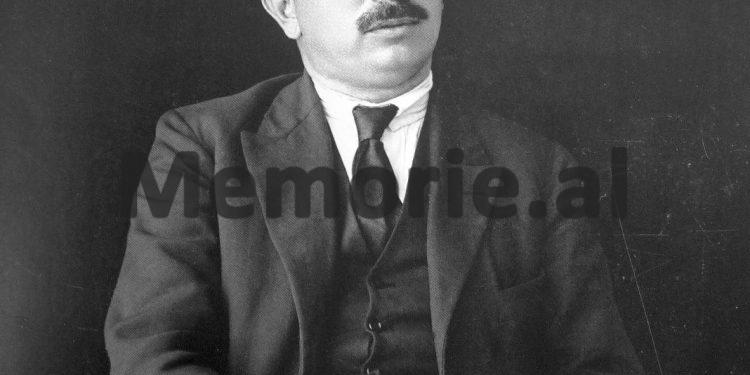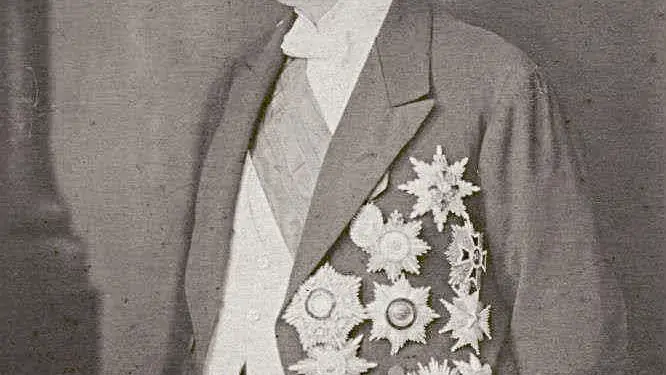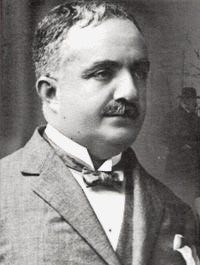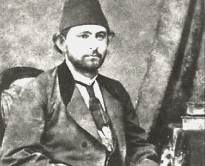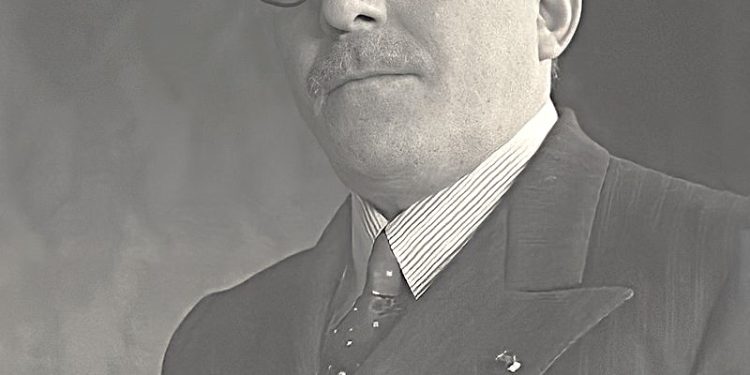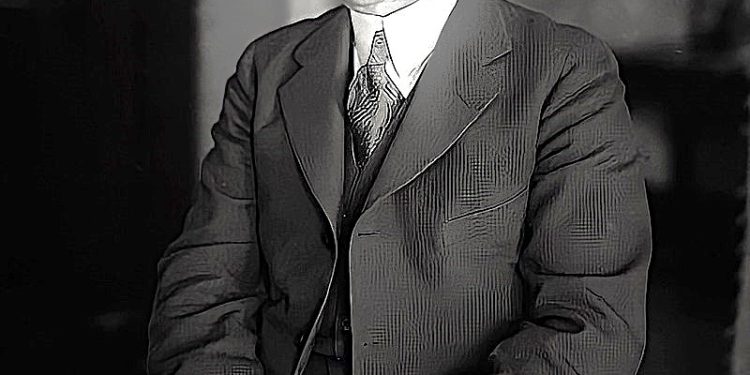Part One
Memorie.al / “In Zog’s time, it was more difficult to become a diplomat than it is today.” Uran Asllani, a scholar of Albanian diplomacy from 1914-1944, and the son of one of the most distinguished Albanian diplomats of the ’30s, explains that a diplomat in that period had to pass through several “sieves” to be appointed to this position. In an interview for the newspaper “Tirana Observer,” he recounts all the criteria a person aspiring to become a diplomat had to meet. He also reveals when Albanian diplomacy began, with which countries we established diplomatic relations, and what their mission was.
Who are the most important figures of Albanian diplomacy of that time? In this article, we are publishing the list of names of diplomats from 1914-1944, and in the next issue; we will publish the list of all diplomats from 1944 to 2007.
Mr. Asllani, when did the history of Albanian diplomacy begin?
The history of Albanian diplomacy is perhaps older than the history of the Albanian state itself, because the diplomatic actions aimed at the creation of the Albanian state, its independence, began before the flag was raised in Vlora. In fact, the first actions date back to the time of the League of Prizren. One of the personalities of the political and state life of that time, who was also a distinguished diplomat of the Ottoman Empire, was one of the Albanian patriots named Abedin Pasha Dino.
This man, right after the Congress of Berlin, was the Minister of Foreign Affairs of the Ottoman Empire, and as such, he played an extremely important role in defending the Albanian territories and lands within the framework of the defense of the Ottoman Empire. Therefore, Albanian diplomatic activity should not be understood as a state activity, but as an activity that aimed at protecting the rights of Albanians, protecting the territorial integrity of Albania. We are often told that the Albanian Renaissance is late, while other Balkan states had their National Renaissance two centuries or one century ago.
We began the activity of the National Renaissance when the danger of the disappearance of national territorial integrity appeared, when we understood that Turkey could not protect us. Then a National Renaissance was raised, which, within the framework of the Ottoman Empire, was to protect the territorial integrity of Albania with the four vilayets. If the four vilayets were together now, Albania would have over 4 million people. So, there was the Vilayet of Janina, which went up to Preveza, from where Abedin Pasha Dino was from. There was the Vilayet of Manastir, the Vilayet of the Shkodra area, and the Vilayet of Peja, Kosovo-Albania.
The Vilayet of Shkodra met with Manastir, and Janina met with Shkodra and Manastir and included Berat, Vlora, and Elbasan. So, we can trace the beginning of the history of diplomacy back to that time. But the official beginnings we have in the short period of the provisional government of Ismail Qemali, when this period also coincided with the Conference of Ambassadors, and consequently Albania had to be represented at the Conference of Ambassadors with a dignified delegation.
And this delegation was composed of the most distinguished people of that time, at the head of which Ismail Qemali had placed the son of Abedin Pasha Dino, Rasip Dino. In one of the telegrams that Ismail Qemali sent him, he says: “I have sent a telegram that you are the delegate of the Albanian government.” And he in London, Paris, Vienna, Rome, everywhere defended the rights of the Albanian state, within the framework of the Conference of Ambassadors and then, gradually, in all the phases of the diplomatic Albanian state.
With which countries did we establish diplomatic relations?
The beginnings of establishing diplomatic relations were precisely when it was remembered that the Albanian state was formed and consolidated with the establishment of a foreign prince. The history of the Balkans is strange. All the states that were created in the Balkans, the Great Powers of Europe did not entrust the leadership of the state to the people of the country. For example, they sent a German prince, Ferdinand, to Bulgaria. To Greece, they sent the Danish prince, Otto; to Romania, a German prince. Only Serbia was an exception, which was an old kingdom, and even there with divergences between the two royal families, the Karadjordjevićs and the Obrenovićs.
Meanwhile, in Albania, they brought Prince Wied. It was precisely then, in June 1914, that we sent our two representatives to two states that were truly important to us at that time, Austro-Hungary and Italy. There was no question of Yugoslavia then, which was a small Serbia, nor was there any question of Greece. So, in these two countries, the government of Turhan Pasha Përmeti sent two personalities who had also been important people before, during the time of the Ottoman Empire. These were Syrja Vlora, a deputy, and Eqerem Libohova, a regiment commander of the Guard. Then gradually, the establishment of diplomatic relations was done after we were recognized by the League of Nations as a state.
This happened in November 1921. But this does not mean that we did not have diplomatic representatives before this year. Since we did not have the rights to have diplomatic representatives, Albania opened consular offices in some Balkan countries where there was a strong Albanian emigration, and they needed to protect their rights. These were called “passport offices.” These were opened in the years ’20-’21, and with the recognition of Albania as an independent state, these offices were transformed into consulates, vice-consulates, or diplomatic representations, at the legation rank.
This happened in Greece, Turkey, England, France, Italy, and Yugoslavia. And the biggest wonder was that although the USA at that time did not have the power to represent the fate of states, due to the large Albanian emigration we had in America, we opened a consular office and a diplomatic representation in Washington. A man, one of the few of that time, a doctor of legal sciences, Kostandin Çekrezi, was placed there.
What was their mission?
Intertwined with the reasons why these passport offices were opened, their mission is also evident. The mission of the Albanian diplomatic service had two perspectives. The more utilitarian perspective was the protection of Albanian interests, in terms of providing passports and visas, so that Albanians could have a document that recognized their citizenship. A curiosity: my father and his student friends, when they went to Vienna, had no documents at all, and the day Gjergj Pekmezi provided them with Albanian documents, they truly felt that they were Albanians. The second function was, more or less in one way or another, to normalize relations or to highlight the rights that Albanians sought. Especially, until the time when the borders were determined.
That is, the issue of borders started in 1922 and ended in ’25. But in a special way, it was also the establishment of trade relations with these countries through treaties. There was a period of time when Albania exported colossal quantities of leather, wool, and cheese. And these matters had to be handled in the form of trade treaties, to protect the rights of exporters. Then, there was also the problem when the Albanian state was consolidated and economic, financial, technical, and legislative assistance was needed from the complex perspective of a state. At that time, Albania started a policy where we sought to rely on the English.
However, with some international treaties that were in Europe, England withdrew and the exclusivity was left to Italy to deal with them. This is because the decision that was made for the recognition of the Albanian state, which was made in 1921, the clause was under Italian protectorate. Often when the problem arose that Albanian diplomacy and Zog sought the help of a great state, they would say; we have left this matter to Italy. Italy had opened a slogan for the Mediterranean Sea; they called it “Mare Nostrum” (Our Sea).
How were the diplomats chosen?
This is an interesting question. Initially, when the Albanian state was created, it didn’t have the guts for many reasons. First of all, it didn’t have a solid state structure. The period 1920-’28 was a great turmoil for the Albanian state. Uprisings after uprisings, deputies against deputies, until they managed to convict Aqif Pasha Elbasani. And since this newly formed state did not have the opportunity to make a selection of diplomats, also because at that time a large part of our intelligentsia was in schools, the former Albanian diplomats in the service of the Ottoman Empire were taken into diplomatic service, such as Myfit Libohova, Sulejman Delvina, Turhan Pasha, Mehmet Konica, etc.
They had been consuls, first secretaries of the Ottoman embassies in Athens, Bern, Madrid, and Rome. Turhan Pasha was an ambassador for almost 25 years in Saint Petersburg, then in Rome, then in Madrid. In the second phase, educated Albanian diplomats of the ’20s-’30s began to be selected. Entry into the diplomatic service at that time was decided by a competition, starting in 1922. One of the requirements of the competition was that you absolutely had to have a degree in Law or Political Science. The second condition was to know international legislation, treaties, etc. This was from the theoretical side. While the practical side was that you had to speak and write legal treaties in French.
I have seen files in the archives of the Ministry of Foreign Affairs, treaties in French, which could only be done at the Sorbonne. Out of 7-8 competitors, only 3 won the right to be employed. And they received the title or rank of attaché. For a minimum of 6 months to 1 year, they were required to stay with this title. Then, if they made a request to be re-categorized, they would become a third secretary. They had to pass two or three years to become a second secretary. Then they had to pass as many years to become a second secretary, and four or five years to become a legation counselor. Then from this position, they would move to Minister Plenipotentiary of the third, second, and then first class. In Zog’s time, out of 87 diplomats he had, in ’37 there were only 8 Ministers Plenipotentiary of the first class, and they were former ministers.
At what levels was Albanian diplomacy in the years ’20 – ’30?
Albanian diplomacy in Zog’s time can be divided into two phases: the phase before ’25, and after ’25. In the first phase, Albanian diplomacy was completely individual authority diplomacy. The state platform was known, and on that platform, the diplomat would elaborate his own diplomacy. After ’25, when a president of the republic was placed at the head of the Albanian state and after ’28, when this president became King in the Albanian state, then Albanian diplomacy intertwined its work with the policy that the king developed. However, until ’27, Albanian diplomacy was very interactive. At that time, the problem was where to build a nest, to be attached to.
In ’27, it was understood that Italy would do the “shesh e përshesh” (the whole thing) here. In ’26-’27, two treaties were made which were called treaties of enslavement of Albania. Italy sat down cross-legged in Albania. It brought instructors to the Albanian administration and the Albanian army. Only the gendarmerie was saved. Zog gave the gendarmerie to the English, and this was the most accurate part during Zog’s period. While the army was quite weak, sabotaged by the Italians, the gendarmerie was very strong. In this phase, after ’27, it is not at all true what has been said until today, that Zog’s policy was a policy of submission to Italy. During the period ’27-’38, Albanian diplomacy, generally, with some exceptions, fought to break away from Italy, to have as many opportunities for development as possible.
I have correspondence from the Minister of Foreign Affairs of that time, who sent it to my father, who was an ambassador in London and said to him: “The situation is this. We import 34 million francs from Italy and we can export half a million francs to Italy. We must break away from the Italian tutelage. Fight, Mr. Asllani, so that we can connect with Czechoslovakia, Germany, etc.” But this was unsuccessful. As the fate of Albania was determined to be completely tied to Italy. Those in whom Zog had trust, the English, constantly left it in the hands of Italy. With the exception of one case.
In ’34, to scare Italy, the English brought 6 warships to our coast. But this was episodic. Ultimately, despite the extremely intensive policy that Albanian diplomacy has made, especially with Rauf Fico, Xhaferr Vila, and my father, we still could not break the foreign policy of Italy with Albania and the foreign policy of Albania with Italy. But the whole fight was to benefit as much as we could from those bilateral treaties that were concluded, but which were not implemented as they should be.
What is the golden period of Albanian diplomacy in those years?
I would say that the golden period of Albanian diplomacy is precisely the period when we were presented on the international arena, the period 1921-’25. Although you cannot say “golden period,” as we did not excel with our foreign policy, because it was the policy of a state that was economically dependent on another state. However, the successes that Albanian diplomacy had in the period ’20-’23 are successes to be noted. An interesting success was during the year 1936. Albanian diplomacy, through the civic activity of Mit’hat Frashëri and which was later continued by other diplomats, was the opening of Albanian schools in Chameria, with Albanian teachers of the mother tongue. This was a great victory.
What role did Albanian diplomats play in the international arena in that period?
The role of dignified diplomats, cultured, with a horizon. All the diplomats who were title holders, but also at the rank of consul, were personalities in their own field. They were personalities who had confirmed themselves since the time of the Ottoman Empire. They were personalities of Albanian social, political, literary, and cultural life. For example, Faik Konica, Mi’that Frashëri, Mehdi Frashëri, or important military personalities such as Ali Riza Kolonja, a general division commander in the Albanian army, Eqerem Libohova, a regiment commander, Mehmet Konica, a consul, a vice-consul, that is, they were people who did not appear unexpectedly in European life, but they were people who were known.
For example, when it was time to find a prime minister for Prince Wied, do you know who recommended Turhan Pasha for prime minister? The Tsar of Russia. When he found out that Turhan Pasha, who had been the ambassador of Turkey for 25 years, was Albanian. Let me give you an example. When Hitler, after meeting with two ambassadors in Germany, says to his Foreign Minister; “Today I met a great ambassador of a small country, and a small ambassador of a great country.” He was referring to the Albanian ambassador, Rauf Fico, who was very dignified in both culture and dress. Another case, from my father, Fuat Asllani. When he goes to London, a month after arriving in London, the first international monetary economic conference takes place there. / Memorie.al




